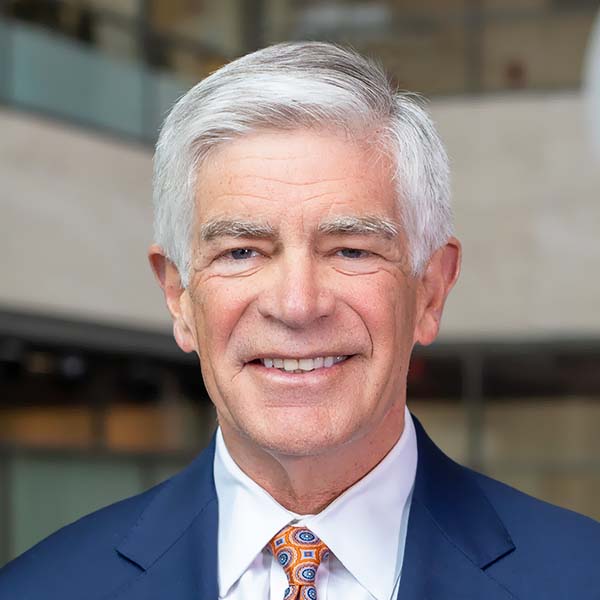I should start my remarks with the traditional “thank yous,” and first on that list has to be Theresa and her team — Theresa is an outstanding voice and mind on community development — and I’m so proud to have all of them here at the Philadelphia Fed.
I’d also like to thank our partners Susan Wachter and The Institute for Urban Research at the University of Pennsylvania.
Thanks are also due to the Community Development teams at all the Federal Reserve Banks that helped organize this event — Philadelphia, of course, and Atlanta, Boston, Cleveland, Minneapolis, New York, Richmond, and St. Louis. Thanks for all your hard work.
And finally, thank you to everyone for coming. The Reinventing Our Communities conference is our signature Community Development event, and many of you have been attending for years. This, however, is my first one. I’ve listened to some exceptional presenters and attendees and heard some great questions and even better answers.
Transforming Our Economies
I just want to take a few final minutes to talk about the past three days and share some thinking about the Philadelphia Fed’s plans in this arena.
Community development work is important for a number of reasons, not the least of which being that what the Fed does and how we do it is a mystery to a lot of people. Despite what many people think, the Fed actually has a fairly limited set of tools, and the only policy we set is monetary policy. We don’t deal with taxes or spending or debts or deficits — except to the extent that they affect the overall economy.
But we do help banks meet their Community Reinvestment Act requirements, and we have a singular role in brokering relationships between funders and organizations that can use the financial help. This sounds like an odd role for policy geeks, but it actually makes perfect sense. The goal of the Fed is to create the conditions in which economic growth can thrive. One way to encourage that growth is by ensuring every part of the country — every community, every individual — has a chance to become economically self-sustaining.
Some people might question why this should matter, especially if they’re not directly affected by poverty. Or they may think the time and money these organizations are expending could be better used somewhere else. So, why should they care? Why should the Fed care?
Aside from my personal view that we have a moral imperative to ensure that everyone has a fair chance at success, there’s a practical argument as well. Regions are best off when all their constituent areas do well. Our own economic fates are informed by our neighbors’. And the investments we make now to alleviate poverty — be they pre-K education or adult skills training — will come back to us all. That’s why we call it an investment. We’re helping to create the next workforce, the next engine of the American economy, the next wave of educators and engineers. Not to mention the people who’ll be contributing to the economy — and our Social Security — when we’ve all retired. Making sure everyone has a level playing field just makes good economic sense.
Agenda on Poverty and Prosperity
That’s why I’m delighted to announce that the Philadelphia Fed will be leading an effort to bring national attention to poverty and the ways in which it influences economic growth and prosperity.
We’re calling it the Agenda on Poverty and Prosperity, an intensive research initiative to better understand how poverty affects the economy, to inform policymakers, and to use our findings to promote economic mobility. We will sponsor work on inclusive growth, tapping the nation’s best economic minds and research and pairing them with lessons gleaned from practitioners’ on-the-ground experience.
We’ll conduct and share research, host an online information and data tool for the public, and inform Federal Reserve System leadership about our findings.
Additionally, we’ll be encouraging investment in strategies that promote development and inclusion. Over the next three years, we will host a series of Economic Research in Action Labs. Top economic researchers will present their findings to leaders from the public, private, nonprofit, and philanthropic sectors in our District to help inform policy solutions.
Finally, we will continue to reach out to private sector partners for their thoughts, and, of course, their resources, connecting them to practitioners who can put them to use.
I want Philadelphia to be a leader in this work because I see it as a fundamental part of the long-term economic health of the region and the country.
Conclusion
Economies evolve, and approaches to growth and stability have to change with them. We can’t wish for the resurgence of an economy long past; we have to adapt to new realities and use the lessons we’ve learned over time to usher in that new era — ideally one in which everybody can benefit. Each of you here today has played a part in gathering the information, relating the lessons, and making the strides that have gotten us this far. I’m grateful for your work and hope that we’ll see some of you in this room presenting your research at one of our labs.
For now, I thank everyone again — for attending, for providing thoughtful and enlightening conversation, and, of course, for putting it all together.
Thank you.
Note: The views expressed are my own and not necessarily those of the Federal Reserve System or the FOMC.
View the Full Speech
